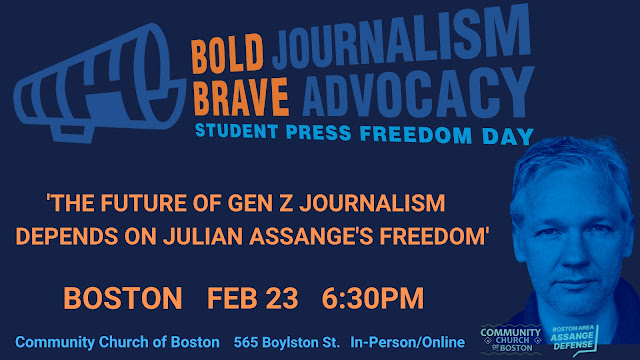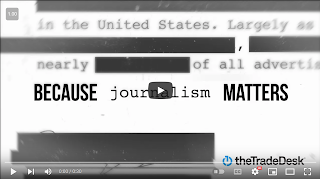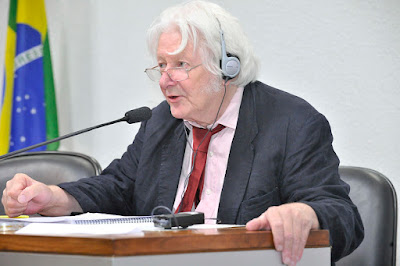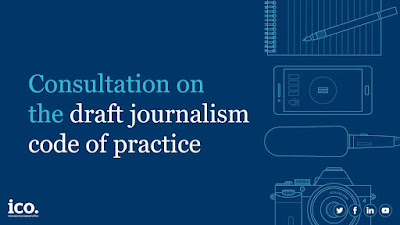The Eighth Circuit reached mixed outcomes yesterday in First Amendment review of the Iowa "ag gag" law, upholding a criminal prohibition on entering agricultural production facilities under false pretenses.
"Ag gag" refers to laws designed to deter undercover investigative reporting on the agricultural industry, especially by criminalization. On the one side, journalists, public health advocates, and animal rights activists point to a tradition of undercover reporting dating to the Upton Sinclair muckraking classic
The Jungle (1906), which exposed labor exploitation in the meat industry.
Journalist and professor Brooke Kroeger—who filed an amicus with the Eighth Circuit in the instant case—in her book Undercover Reporting: The Truth About Deception (2012), actually traces the tradition farther back, to reporting on slavery and human trafficking in the 19th century. For a more recent entry in the genre, check out Michael Holtz's fascinating pandemic-era report, in last month's Atlantic, from inside a Kansas slaughterhouse.
On the other side, private business and advocates for private property rights point to the simple proposition that falsehood is impermissible in commerce and should not be permitted to facilitate trespass and undermine (markedly unidirectional) employee loyalty.
Insofar as the problem boils down to the criminalization of falsity, a fuzziness surfaces in First Amendment fundamentals. The U.S. Supreme Court has long recited competing mantras on the permissibility of state regulation of falsity. For example, commercial speech doctrine cuts a wide berth for the regulation of false and misleading expression, allowing free speech and consumer protection law to coexist upon the premise that falsity has no social value. At the same time, First Amendment doctrine in areas such as defamation law, animated by the Miltonian-Millian philosophy of liberty, tells us that a free marketplace of ideas must allow for the expression of falsity so that truth can be tested and revealed.
The Court tackled this dichotomy in United States v. Alvarez in 2012, striking down part of the Stolen Valor Act of 2005, which criminalized misrepresentation of military honors. But the Court fractured on rationale. The plurality applied First Amendment strict scrutiny, and a concurrence would have applied intermediate scrutiny. No one challenged the negligible scrutiny that abides criminalization of falsity in perjury, for example. The distinction that upped the ante in Alvarez was the statute's "sweeping, quite unprecedented reach," regardless of context, regardless of motive. Whereas a perjury prohibition plainly protects the integrity of the judicial process, the Stolen Valor Act pertained "to a false statement made at any time, in any place, to any person," for any reason.
And it was on that distinction that the Eighth Circuit perceived a difference in two provisions of the Iowa ag gag law. One provision the court, affirming the district court, struck down, concerning the criminalization of false statements on an employment application. The Iowa legislature, like Congress in Alvarez, overreached.
The proscription of the Employment Provision does not require that false statements made as part of an employment application be material to the employment decision.... [The statute] allows for prosecution of those who make false statements that are not capable of influencing an offer of employment. Plausible scenarios abound: the applicant falsely professes to maintain a wardrobe like the interviewer’s, exaggerates her exercise routine, or inflates his past attendance at the hometown football stadium.
The court reached a different conclusion on the provision prohibiting access to agricultural production facilities upon false pretenses. That implication of falsity was sufficiently linked to "a legally cognizable harm—namely, trespass to private property"—that the court placed the provision beyond First Amendment review, distinguishing the ag gag law from the Stolen Valor Act. "The better rule in light of Alvarez is that intentionally false speech undertaken to accomplish a legally cognizable harm may be proscribed without violating the First Amendment."
The opinion has a bit of candy for tortheads, too, in reasoning that even trespass warranting only nominal damages is "a legally cognizable harm." "Trespass is an ancient cause of action that is long recognized in this country. See United States v. Jones [U.S. 2012]; 3 William Blackstone, Commentaries ... ," the court began.
[The district] court’s own citation to Black’s Law Dictionary acknowledged that nominal damages are "awarded when a legal injury is suffered but there is no substantial loss or injury to be compensated." Damages, Black’s Law Dictionary (10th ed. 2014) (emphasis added). Nominal damages are not "purely symbolic, a mere judicial token that provides no actual benefit to the plaintiff." Uzuegbunam v. Preczewski [U.S. 2021]. They are, rather, damages paid to a plaintiff that provide redress for an injury. Id.... Even without physical damage to property arising from a trespass, these damages may compensate a property owner for a diminution of privacy and a violation of the right to exclude—legally cognizable harms. See ALDF v. Wasden ... (9th Cir. 2018) (Bea, J., dissenting in part and concurring in part); see also Cedar Point Nursery v. Hassid [U.S. 2021] ("The right to exclude is one of the most treasured rights of property ownership.")....
The complainant in the Iowa case is the Animal Legal Defense Fund (ALDF), which has litigated and is litigating ag gag challenges throughout the country. (I'm faculty adviser for the Student Animal Legal Defense Fund at UMass Law.)
The first time I testified in a legislative hearing, in my first year of teaching in 1998, I spoke, at the invitation of the Society of Professional Journalists, against an Arkansas ag gag bill. The bill died in committee. In the 1990s, an earlier generation of ag gag laws targeted speech about Big Ag as a form of civil or criminal defamation. That approach was especially vulnerable to First Amendment challenge.
At the same time, in the 1990s, the
Food Lion case against ABC News, over undercover reporting on food mishandling, was playing out in the courts. By decade's end, Food Lion prevailed against the ABC defendants for trespass and breach of the employee duty of loyalty, but not for defamation or fraud. Big Ag learned to reframe ag gag to focus on conduct, rather than speech. The next generation of ag gag laws aimed to protect private property against trespass, feigning ignorance of First Amendment implications.
Presently, the ALDF is fighting a broad Arkansas ag gag law, in the property-protective vein, enacted in 2017. On Monday, the day before the Iowa opinion was announced, the Eighth Circuit revived and remanded the ALDF suit in Arkansas. The district court had dismissed upon an erroneous understanding of First Amendment standing. The Arkansas law is a model of special interest legislation enacted at the behest of Big Ag power-player Vaught Farms.
The Eighth Circuit opinions in both the Iowa case and the Arkansas case were authored by Judge Steven Colloton, an Iowan. Judge Colloton had different co-panelists in each case, and both panels generated a dissent. In the Iowa case, Judge Raymond Gruender, a Missourian reportedly short-listed by President Trump for the Supreme Court, would have upheld the Iowa law in both provisions. In the Arkansas case, Judge Bobby Shepherd, an Arkansan criticized for upholding Missouri anti-abortion laws to set up a challenge to Roe v. Wade, tracked the erroneous reasoning of the district court on standing.
I find worth quoting a short concurrence in the Iowa case. Judge L. Steven Grasz, a Nebraskan, hints at the relationship between ag gag and the bigger First Amendment picture of our contemporary misinformation crisis.
This nation was founded on the concept of objective truth ("We hold these truths to be self-evident...."). And some of our nation's oldest institutions were founded as instrumentalities of the search for truth (Veritas). The quest for truth has not, of course, ended; nor has the clash between the free flow of ideas and the desire to punish untruthful speech that is perceived as harmful. The law has long provided for legal consequences for false speech constituting fraud, perjury, and defamation. The present case, however, presents a new category of deceit which the State of Iowa seeks to penalize. Some see it as investigative journalism. Others see it as lying to further an agenda at the expense of private property rights. In either sense, its punishment presents a legal dilemma between protecting property and protecting speech. While some have always questioned whether truth can be known ("What is truth?"), our task is not to answer that question but simply to determine whether the constitution allows the government to criminally punish falsity in the specific context of the statute before us.
I join the court's opinion in full because I believe it is consistent with current law, as best we can determine it from limited and sometimes hazy precedent. Still, I do so hesitantly as to the Access Provision. The court's opinion today represents the first time any circuit court has upheld such a provision. At a time in history when a cloud of censorship appears to be descending, along with palpable public fear of being "cancelled" for holding "incorrect" views, it concerns me to see a new category of speech which the government can punish through criminal prosecution. Ultimately, the Supreme Court will have to determine whether such laws can be sustained, or whether they infringe on the "breathing room" necessary to effectuate the promise of the First Amendment.
Going forward, a key question will be whether access-by-deceit statutes will be applied to punish speech that has instrumental value or which is tied to political or ideological messages....
In general, public interest constitutional litigation against state ag gag has fared very, very well in the courts. So the Eighth Circuit distinction on the Iowa access provision bucks the trend, which is not to say the court was mistaken. To my mind, most of the victories against ag gag, as in the Iowa case, have derived from legislative overreach. As I told the Arkansas committee in 1998, it is possible to draft an "ag gag" bill that would pass constitutional muster. But such a statute would substantially duplicate the existing tort law of trespass, fraud, and product disparagement. And while common law tort accommodates constitutional norms by design, rigid statutes are more prone to invite expensive legal challenge in the application.
The real problem, politically for Big Ag, is that it wants more than tort law gives, or than constitutional law permits. And for public interest advocates, the problem ultimately is one of policy, not constitutional law. Legislators must be motivated to choose accountability over campaign donations, and the public must be motivated to care about labor conditions and animal welfare, even when opacity precludes investigation.
These cases also resonate in the vein of transparency and access in the private sector. As I have written previously, contemporary social and economic woes increasingly arise from private-sector abuse of public trust, and our cramped notion of state action is critically diminishing democratic accountability.
The Iowa case is Animal Legal Defense Fund v. Reynolds, No. 19-1364 (8th Cir. Aug. 10, 2021). The Arkansas case is Animal Legal Defense Fund v. Vaught, No. 20-1538 (8th Cir. Aug. 9, 2021).



















